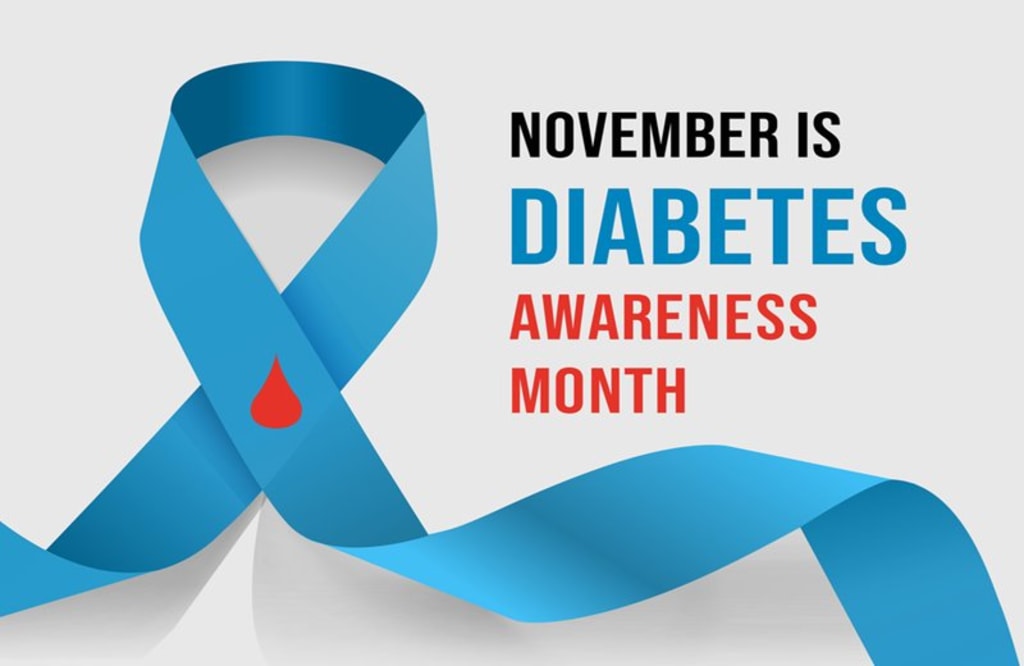UK Prepares To Raise Awareness Of Diabetes
November Is Diabetes Awareness Month And People In The UK Hope To Raise Awareness Of The Condition And The Restrictions It Puts On People's Lives

This month is National Diabetes Awareness Month and is a time when people across the country are encouraged to draw attention to Diabetes and the life long side effects it can have on the way people live their daily lives. This year, the campaign is choosing to focus mainly on pre- diabetes and the ways in which people can prevent themselves from ever contracting the condition. As a result of this, people should have the knowledge and skills they need to live healthier lives and ensure that they don't have to take medication every day to stop their blood sugar going too high and causing other related health conditions.
Diabetes is a serious health condition when people's blood sugar is much higher than normal. There are two different types of the condition. Type 1 Diabetes is an autoimmune condition where the body's immune system attacks and destroys insulin producing cells. Insulin is a hormone which prevents people's blood sugar going too high and causing them to contract diabetes. If these cells are destroyed, the body will not be able to regulate it's blood sugar level and it may cause damage to nerves and blood vessels which in turn affects the organs they supply.
There are over four hundred thousand people with Type One Diabetes in the UK so it is relatively common. Out of these, around twenty nine thousand of diabetes sufferers are children which can be a little problematic as you have to watch them all the time to ensure they are eating the right kinds of food and that they don't slip in to a coma if their blood sugar is too high or too low.
There are over fifty genes in the body which have been identified that can increase a person's risk of developing Type One Diabetes/ This however is only part of the cause and scientists around the world are conducting studies to look at how environmental causes can affect a person's risk level for developing the condition.
What is known is that:
Destruction of insulin-producing beta cells is due to damage inflicted by your immune system
Something triggered your immune system to attack your beta cells
Certain genes put people at a greater risk of developing type 1 diabetes, but are not the only factors involved
While there are no proven environmental triggers, researchers are looking for possible culprits, such as viral infections and particular molecules within our environment and foods.
People who have a strong history of people developing diabetes in their families are more likely to develop the condition themselves so they have to make sure that they always watch what they eat and test their blood sugar level regularly to ensure it is not too high or too low. People can get medication from their doctors which they have to take to help ensure that they keep track of what their blood sugar level is and it doesn't spiral out of control.
Every two minutes someone finds out that they have Type 2 diabetes, a potentially serious health condition that can cause long-term health problems. It can lead to sight loss, kidney failure, loss of a limb, and makes you at least twice as likely to have a heart attack or stroke.
This is a more common form of diabetes and is caused when someone is overweight or obese and eating the wrong kinds of food and not exercising. This can be reversed if people lose weight and start to eat a more healthy diet.
The medication for Type 2 diabetes is usually tablets followed by insulin injections at a later date if necessary. Sometimes, Type 2 diabetes medication can cause diarrhoea (upset stomach), but if you take it at night this is less of a problem.
People can also develop gestational diabetes when they are pregnant. This affects women who have had no connection with diabetes before and means that they have high blood sugar and need to take more care of themselves and their baby. This usually goes away again after the woman has given birth.
If you'd like to find out more about diabetes and ways to reduce your risk of contracting the condition, please visit www.diabetes.org.uk






Comments
There are no comments for this story
Be the first to respond and start the conversation.